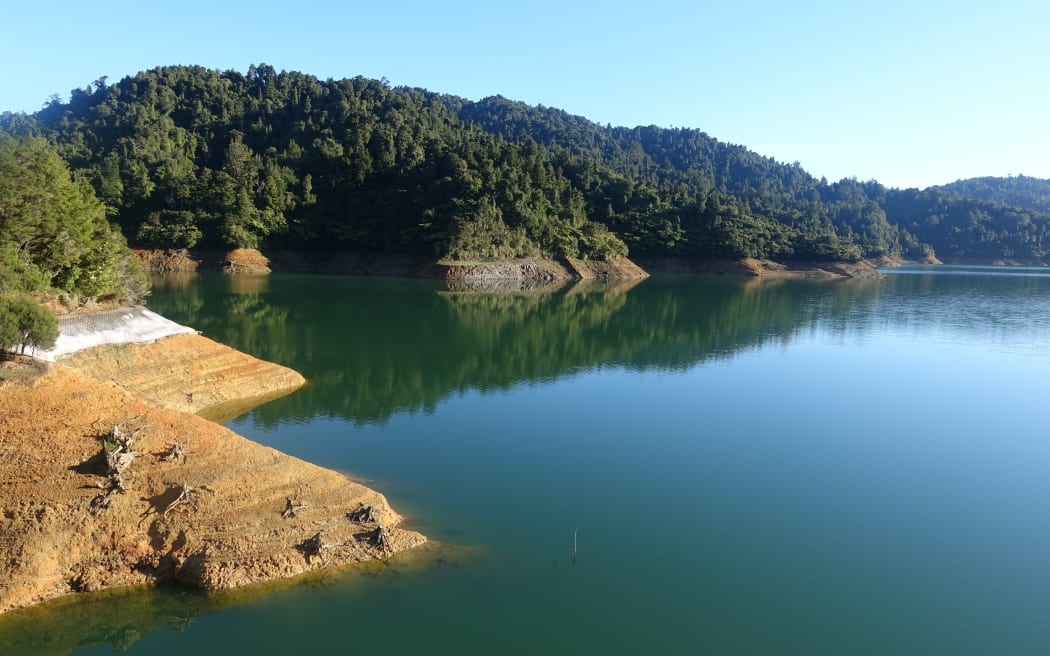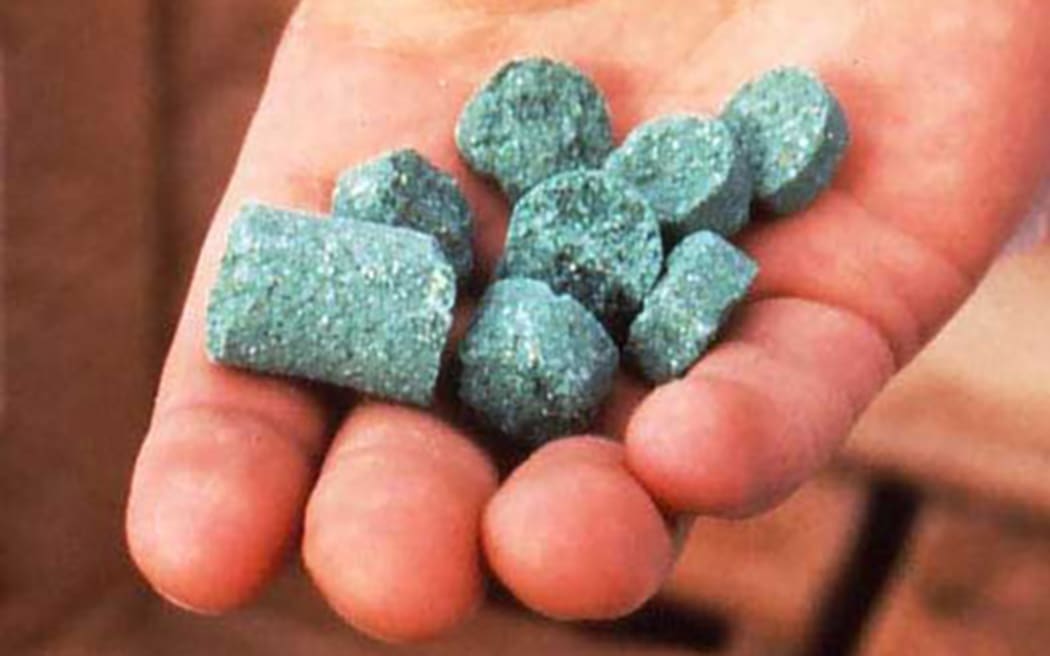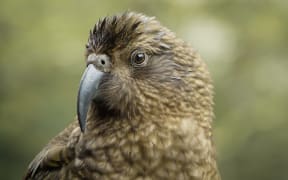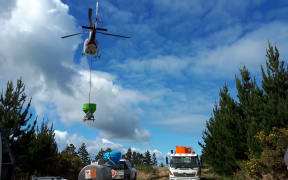Auckland Council has received approval to conduct its third aerial pest control operation in the Hunua Ranges.

Mangatangi Dam in the Hunua Ranges. Photo: Supplied / Watercare
The purpose of the operation is to reduce pest numbers and maintain the natural habitat of the Hunua Ranges.
The council says pest levels in the area have risen again following previous 1080 operations in 2018 and 2015.
Sodium fluoroactetate, or 1080, is a toxic poision which is set to be applied by helicopter to around 20,501 hectares of parkland in the Hunua Ranges.
The Hunua Ranges is the largest area of native forest in the Auckland region and is home to many of Aotearoa's threatened species.
It is also a source of approximately 65 percent of Auckland's drinking water.
Auckland Regional Public Health Service has placed a number of conditions on the pest control programme to protect public health.
Water reservoirs will be protected by having:
- A 'no fly zone' designation,
- Buffers around water reservoirs to exclude any 1080 baits from being dropped within this zone,
- Exclusion buffers around the water intakes,
- Isolation of reservoirs from the water treatment plant while bait is being laid and before it becomes degraded
- Extensive water monitoring for 1080
- Reconnection of reservoirs to the water treatment plant only after water tests show that no 1080 has been detected
- Monitoring and removal of dead carcasses in the vicinity of the water reservoirs.
Watercare chief operations officer Mark Bourne said the dams would be taken out of service ahead of the drop and would only be returned to service after a stringent water quality testing regime confirmed no 1080 was detected in the water.
"Our dams in the Hunua Ranges are Auckland's most important water sources, normally supplying about two thirds of Auckland's water," Bourne said.
A satellite navigation system (GPS) and custom-designed bait applicators would be used to distribute bait (by helicopter) across the operational area.
"Auckland Council will ensure helicopters carrying bait will not fly over the reservoirs, and there will be setbacks from the margins of each reservoir. While the bait application is being carried out, the dams will be out of service and will only return once a comprehensive water sampling programme has been completed," he said.
Auckland Council would conduct the operation as soon as ideal weather conditions arrived.
Auckland Council general manager of environmental services Rachel Kelleher said the operation would continue to protect the native wildlife which resided in the parkland.
"The Hunua Ranges is the largest area of native forest in the Auckland region and is home to many of Aotearoa's threatened species," Kelleher said.
"Together with the Department of Conservation and our iwi partners, our focus is on the protection of these species and our unique flora and fauna.
"Many of these native species are national taonga (treasures) and are vulnerable to introduced pests and diseases, however, through this collaborative work, significant gains and successes have been seen in the ranges over the last seven years, with many of our threatened species beginning to bounce back."

1080 pellets (file image). Photo: FOREST AND BIRD
There was no known risk to people's health from drinking water sourced from reservoirs in the Hunua Ranges.
Council has shown that even if a full load of 1080 being carried in a helicopter bucket were to accidentally drop into one of the Hunua reservoirs, the concentration of 1080 in water would remain undetectably low and present no risk to public health.
"Since the last aerial pest control operation, we've continued to monitor the number of possums and rodents," Kelleher said.
"While the data shows a slow possum reinvasion, rat densities have increased more significantly, putting the breeding success of our native birds, lizards and bats at risk once again."
Despite the increase, numbers were still lower than they were before the 2015 and 2018 operations, which led council to extend the period between operations from three to four years.
The pre-feed phase of the operation familiarises pest animals with the cereal baits, ahead of the baits containing 1080 being applied in the following weeks.






